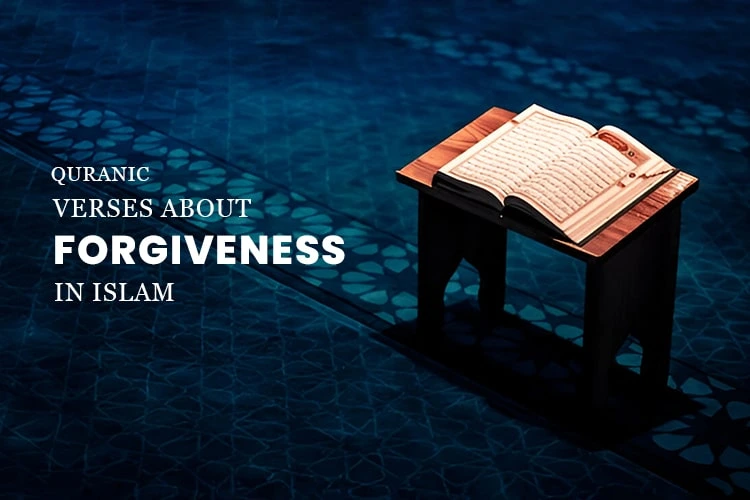Forgiveness in Islam is one of the most emphasized virtues in the Quran. It is not just about seeking Allah’s mercy but also about forgiving others and creating a compassionate society. As humans, we make mistakes, but Allah’s mercy is vast, and He loves those who repent sincerely.
In this article, we will explore Quranic verses about forgiveness in Islam, their meanings, and how we can incorporate forgiveness into our lives.
The Concept of Forgiveness in Islam
The Concept of Forgiveness in Islam emphasizes Allah’s infinite mercy, the importance of repentance, and the virtue of forgiving others.
Allah’s Mercy and Forgiveness
Allah’s mercy is greater than anything we can imagine. In the Quran, He repeatedly assures us that He is Ar-Rahman (The Most Merciful) and Ar-Raheem (The Most Compassionate). His forgiveness extends to all, provided they turn to Him with sincere repentance.
The Role of Tawbah (Repentance) in Seeking Forgiveness
Islam encourages believers to seek forgiveness through Tawbah (repentance). It is not just about saying “Astaghfirullah” but genuinely feeling remorse, making amends, and resolving not to repeat the sin.
Quranic Verses About Forgiveness in Islam

The Quran is filled with verses that highlight the beauty of Allah’s mercy and the importance of forgiveness. Let’s explore some of these verses:
1. Allah’s Infinite Mercy and Readiness to Forgive
Allah assures us in the Quran that no matter how many sins we commit, His mercy is always greater.
📖 “Say, ‘O My servants who have transgressed against themselves [by sinning], do not despair of the mercy of Allah. Indeed, Allah forgives all sins. Indeed, it is He who is the Forgiving, the Merciful.’” (Surah Az-Zumar 39:53)
This verse is a powerful reminder that no sin is too big for Allah to forgive as long as one repents sincerely.
2. Seeking Forgiveness Through Repentance
Allah commands believers to turn to Him with sincere repentance:
📖 “And turn to Allah in repentance, all of you, O believers, that you might succeed.” (Surah An-Nur 24:31)
Seeking forgiveness is a path to success, both in this world and the Hereafter.
3. Forgiving Others as a Virtue in Islam
Islam not only encourages seeking Allah’s forgiveness but also teaches us to forgive others:
📖 “And let them pardon and overlook. Would you not like that Allah should forgive you? And Allah is Forgiving and Merciful.” (Surah An-Nur 24:22)
This verse teaches us that if we want Allah’s forgiveness, we must also forgive others.
4. Allah’s Forgiveness for Sins – No Matter How Big
Allah promises forgiveness even for those who have committed grave sins if they sincerely repent:
📖 “But indeed, I am the Perpetual Forgiver of whoever repents and believes and does righteousness and then continues in guidance.” (Surah Ta-Ha 20:82)
Prophet Muhammad’s (PBUH) Teachings on Forgiveness
The Prophet Muhammad (PBUH) was the greatest example of forgiveness. He forgave those who wronged him, even his worst enemies. When he conquered Makkah, instead of seeking revenge, he forgave his enemies, saying:
📖 “No blame will there be upon you today. Allah will forgive you; and He is the Most Merciful of the merciful.” (Surah Yusuf 12:92)
Benefits of Forgiveness in Islam

Benefits of Forgiveness in Islam include spiritual growth, inner peace, emotional healing, and
fostering harmony in personal and social relationships.
1. Spiritual Benefits
- Strengthens faith and connection with Allah
- Leads to inner peace and tranquility
2. Emotional and Psychological Benefits
- Reduces stress, anger, and resentment
- Brings emotional healing and peace of mind
3. Social and Community Benefits
- Promotes unity and harmony
- Reduces conflicts and strengthens relationships
How to Seek Forgiveness in Islam?
Involves sincere repentance (Tawbah), seeking Allah’s mercy, making amends, and committing to avoid sins.
Steps for Repentance (Tawbah)
- Acknowledge the sin and feel true remorse.
- Ask Allah for forgiveness with sincerity.
- Make a firm intention not to commit the sin again.
- If the sin involves hurting someone, seek their forgiveness too.
Best Times to Seek Forgiveness
- After Salah (prayers)
- During the last third of the night (Tahajjud time)
- On Fridays and during Ramadan
Frequently Asked Questions (FAQs)
Yes, Allah forgives all sins if one sincerely repents, except shirk (associating partners with Allah) if one dies without repenting.
The Prophet (PBUH) recommended this dua:
📖 “Astaghfirullah wa atubu ilayh” (I seek forgiveness from Allah and repent to Him).
Remember that forgiving others brings Allah’s mercy. Let go of grudges and pray for their guidance.

